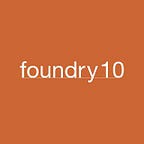How to Engage with Families During COVID-19 Stay-at-Home Schooling
By Riddhi Divanji and Ella Shahn
In fall of 2019, Southeast Seattle Education Coalition (SESEC) organized and launched their second extremely successful family engagement survey to learn how families want to be engaged with by their schools. The survey team engaged a diverse set of 1,419 participants who were majority world language speakers and majority people of color in Southeast Seattle.
SESEC co-designed the survey in six phases over twelve meetings in 6–8 months at 117 local schools with over 20 project partners including:Aki Kurose Middle School, Beacon Hill International School, Bilingual Educator CApacity (BECA), CISC, City Year, Cleveland High School, King County Kinship Collaborative Launch, Maple Elementary, Seattle Public Schools and foundry10.
READ: Family Engagement Survey
Communication Preferences of Dominant and Majority Families
The survey co-designers defined participants in the following terms:
Dominant: Being in a position of systemic power and privilege. More specifically, exerting control over educational practices, policies, and research to reinforce hierarchies between social groups.
White | Full-price Lunch | Non-Immigrant | Primary English Speaker
Majority: Being in a position of democratic potential and possibility. More specifically, transforming educational practices, policies, and research to support historically oppressed and overlooked social groups.
Person of Color | Free or Reduced Lunch | Immigrant | Primary Non-English Speaker
While Dominant families would prefer to communicate by email, Majority families in Southeast Seattle prefer to hear from their child’s school by phone or in-person meeting.
Slow Down and Build Relationships
“When we shared this data with families of color many of them said the data resonated. They saw themselves in the data and understood the results. As an example, some of our immigrant families said receiving information in-person and via phone allows them to ask questions, an email or flier doesn’t allow for this relationship building. So, what does this mean for our schools and for all of us today? It means we need to slow down and take time to build relationships. Relationships are the glue that holds our communities together and it gives us the empathy to want to create change.” — Erin Okuno, SESEC
READ: Close the Relationship Gap by Erin Okuno
Back to Virtual School: Fall 2020
The results of this second comprehensive and inclusive survey illuminate how to engage with diverse families in the Southeast Seattle community. As we go back to school this fall, Erin Okuno, Executive Director of SESEC reminds us not to generalize and use the data to make assumptions about all school communities.
“As we return to school in a ‘different’ way, remember that universal approaches don’t work — ask your families of color, immigrant families, world-language speaking families, etc. what they want school to look like, and involve them in the planning process.” — Erin Okuno
READ: Returning to School During COVID-19 by Erin Okuno
Make Space for the Nuance of Every Individual
To meaningfully engage school families, we must bring together a diverse group of stakeholders and thoughtfully get to know the nuance of each person and group, says Mindy Huang SESEC Coalition and Communications Manager.
“The approaches of our different CBOs and schools may not work for yours or others elsewhere. That means you just have to find another one that does, not try to shove your constituents into a box and force it. Relationships don’t work that way. Humans do not work that way. Our communities have not survived and thrived under these conditions by trying to live that way. To be culturally competent and live true to our values of community, we strive to find and understand the nuances that each and every individual and group brings to the table.” — Mindy Huang, SESEC Coalition and Communications Manager
READ: There is No Magic Bullet by Mindy Huang
Preparing for the Future
We know that COVID-19 will not be our last community crisis. There will be natural disasters and many unforeseen events to come. The question SESEC wants us all to be asking is “how can we respond smarter, more compassionately, and with stronger attention to racial equity?”
Here are Erin Okuno’s 33 questions to ask yourself and your community to prepare for the next emergency:
READ: Now is the Time to Start Planning for the Next Disaster
Learn more about the Southeast Seattle Education Coalition and the Family Engagement Survey Data here .
To learn more about foundry10, follow us on social and subscribe to our monthly Newsletter.
Twitter: @foundry10Ed
Facebook: @foundry10
Instagram: @foundry10
Linkedin: @foundry10
